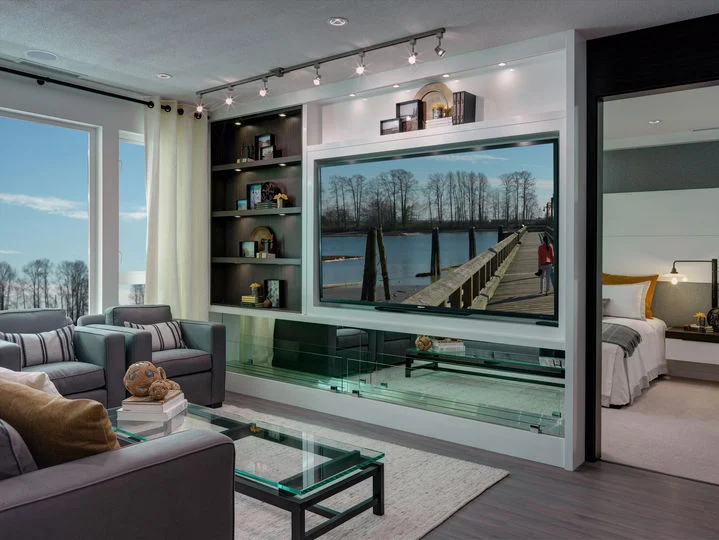
With 2024 almost half done, designers are already setting their sights on an even more dynamic and innovative 2025. To remain at the forefront of the industry, home building companies are breaking new ground to introduce the latest trends and spark a fresh wave of construction, fueled by a dedication to addressing the evolving needs and preferences of contemporary homeowners.
In this article, we’ll explore the top ten home building trends anticipated for 2025, highlighting the innovative designs and features that are set to shape the future of residential architecture.
1. Smart Home Integration

As technology continues to evolve, its integration into home design has become a major trend and expectation of people wanting to build a new home. Smart homes are no longer a futuristic concept; they are here and thriving.
In 2024, expect to see homes equipped with advanced smart systems that control lighting, heating, and security. Voice-activated assistants, smart thermostats, automated lighting, and advanced security systems will become standard features in new homes, offering convenience, energy efficiency, and enhanced security.
2. Aging-Friendly Spaces

With an aging population, designing homes that cater to the needs of old people is becoming increasingly important. Aging-friendly spaces allow for comfortable and safe living for the elderly, without compromising on style.
Features such as wider doorways, walk-in showers, no-step entries, and outdoor ramps ensure accessibility and convenience. This trend not only accommodates the elderly but also makes homes more adaptable for future needs.
3. Multi-Functional Spaces
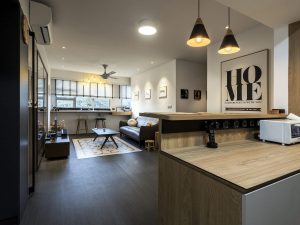
The concept of multi-functional spaces is gaining traction as people seek to maximize their living areas. Homes in 2024 and beyond will increasingly feature rooms that can serve multiple purposes, such as:
- A home office that doubles as a guest bedroom
- A nursery that transforms into a playroom
- Kitchen islands that double as dining tables
- Workspaces that can adapt to the changing needs of households
4. Strategic Planning to Emphasise Natural Light
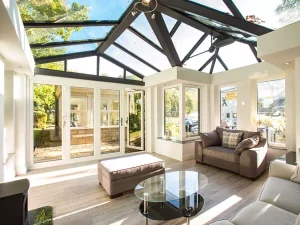
While natural light has long been a favored feature in home design, its strategic integration is expected to become even more prominent in the upcoming year. Expecting an increased focus on full-length floor-to-ceiling glass doors, open staircases, and splash back windows which allow a greater amount of natural light into the home.
These features will be thoughtfully incorporated to increase the benefits of morning and afternoon sunlight, casting a radiant glow within interior spaces and enhancing the overall ambience of homes.
5. Affordable Elegance in Home Features
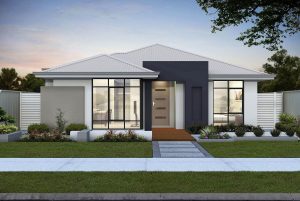
Every year, luxury materials, fixtures, appliances and designs become increasingly within reach. As construction materials and architectural hardware decrease, a growing number of residential builders are incorporating these luxurious features into their budget-friendly models.
In the challenging 2024 home building market, it’s anticipated that companies will intensify their efforts to attract a hesitant market by offering upscale details at more affordable prices. It’s predicted that this will become a significant trend in entry-level homes towards added refinements such as:
- Walk-in pantries
- Generously sized master suites
- Spacious outside entertainment areas
- Outside amenities like swimming pools and patios
- Devoted home offices
- Cinema rooms
6.Resurgence of Hardwood Floors in Home Design
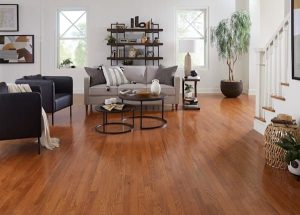
Over the last 10 years, residential architecture has favoured industrial and minimalist influences, resulting in clean lines and straightforward materials but often lacking warmth. In 2024, a significant shift is anticipated with the resurgence of hardwood or timber flooring.
As homeowners rediscover the affordability and appeal of timber, hardwood floors are set to become a popular choice, emphasising the trend of blending the outdoors inside. This shift will introduce character and intensity to new constructions, making timber floors a fundamental design element once again.
7.Blending Interior and Exterior Spaces
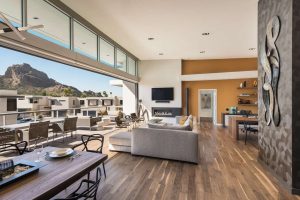
In recent years, biophilic design as a concept has become a prominent trend, highlighting the connection between indoor and outdoor spaces. As the expectations and desires of society have shifted to wanting a life with more outdoor space and integration, upcoming home constructions will need to prioritise this interconnectedness.
Enhancements such as living areas seamlessly extending onto patios and more intricate designs, will become common. These elements not only provide aesthetic appeal but also cater to the increasing shift towards remote work setups and flexible lifestyles, offering a sensory-rich living environment. Anticipated features include:
- Living areas extending onto patios
- Internal atriums
- Verdant courtyards
- Al fresco bathrooms
8.Emphasising the ‘Chef’s’ Kitchen
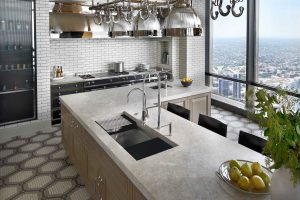
Previously, home designers focused on offering expansive and opulent master suites, enticing buyers with features such as spacious walk-in wardrobes, double ensuites, and mirrored dressing rooms. However, having reached the pinnacle of master suite designs, home builders are now seeking new ideas to captivate their customers. The focus has shifted to the chef’s kitchen.
Traditionally, kitchens often played a secondary role in expansive living areas or amenities like theatre rooms. This trend is changing and in 2025, it’s expected that home kitchens include:
- More counter space
- Larger and superior appliances
- Walk-in pantries
- Breakfast bars
- Wine fridges
- Concealed storage
- Luxurious details such as marble benchtops
These features cater to an increasing number of buyers demanding top-notch equipment for their investment.
9.Style with Eco-Considerations
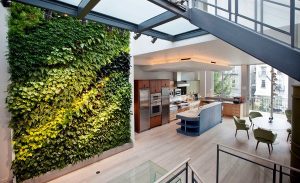
With the increasing awareness of environmental issues, sustainable design principles are becoming more essential within interior design. 2025 will bring a notable rise in the adoption of eco-friendly materials and energy-efficient solutions, as sustainable and ethically sourced design continues in popularity.
Already we are seeing sustainable external cladding outpacing traditional facade options, especially as biophilic design continues to trend forward.
When considering innovative building trends, the uses of parylene coating may become increasingly valuable for developers contemplating advanced protection for various components due to its versatile properties in moisture and corrosion prevention.
Conclusion
As the home building industry looks towards 2025, a wave of innovative trends is set to redefine residential architecture and cater to the evolving needs and preferences of modern homeowners. With these advancements, home builders are not only pushing the boundaries of design but also enhancing the quality of living, setting a new standard for the future of home construction. Need help remodeling your home? Setup a consultation here
